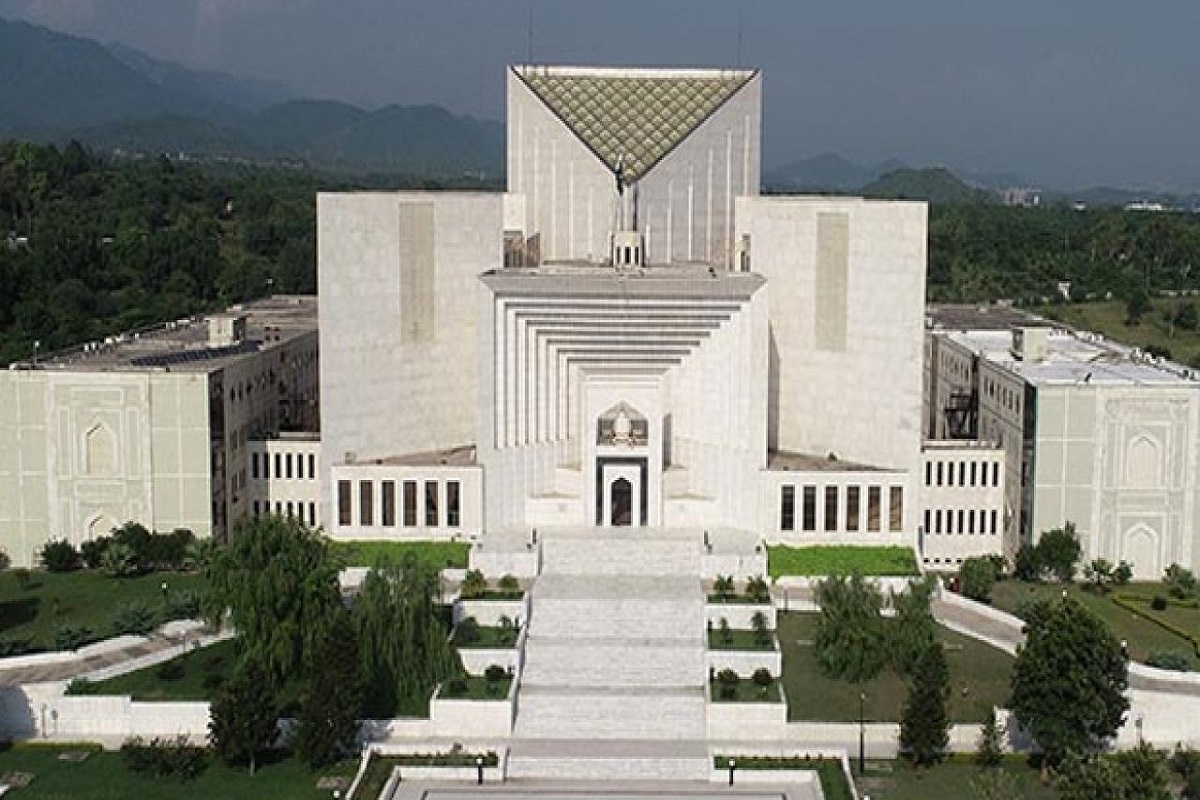SLAMABAD: The Supreme Court of Pakistan released a detailed 70-page judgment on Monday regarding the reserved seats case, authored by Justice Mansoor Ali Shah. This comes two months after the full bench’s July 12 decision, where eight out of 13 judges ruled in favor of granting reserved seats to the Pakistan Tehreek-e-Insaf (PTI) party.
The court’s ruling affirmed that PTI, led by Imran Khan, was eligible to receive seats reserved for women and minorities. The case was heard by a 13-member bench chaired by Chief Justice Qazi Faez Isa, with other notable justices including Mansoor Ali Shah, Shahid Waheed, Ayesha Malik, and several others. The eight judges who formed the majority verdict were Justices Mansoor Ali Shah, Munib Akhtar, Muhammad Ali Mazhar, Ayesha A. Malik, Athar Minallah, Syed Hasan Azhar Rizvi, Shahid Waheed, and Irfan Saadat Khan.
The judgment also noted that PTI had participated in the February 8 elections, securing seats in both the National and provincial assemblies. The court ruled that PTI was entitled to the reserved seats and criticized the Election Commission of Pakistan (ECP) for failing to fulfill its constitutional obligations.
Additionally, the court expressed strong disapproval of two dissenting judges, Justice Amin-ud-Din Khan and Justice Naeem Akhtar Afghan, for remarks made in their dissenting note on August 3, 2024. The judgment stated that the comments from these judges were inappropriate and undermined the court’s integrity.
The judgment highlighted concerns that these dissenting judges had gone beyond the norms of judicial conduct by suggesting that the 80 elected candidates could lose their seats if the majority ruling was followed, and that the Election Commission should not comply with the decision of the full bench. The court viewed these remarks as an attempt to disrupt the judicial process and hinder the administration of justice.



















